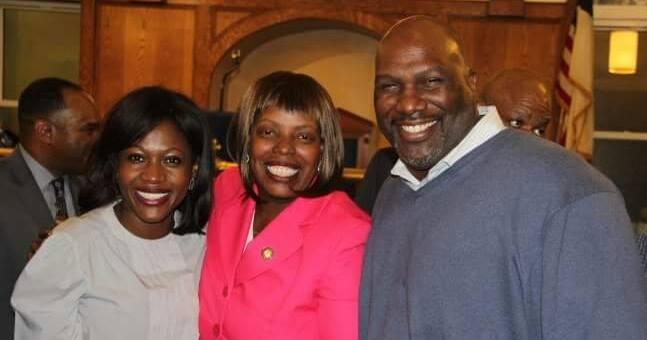Brownsville Assemblywoman Latrice Walker began her State of the District speech laying out the stark facts of a neighborhood of color suffering all the ills of American economic hardship, but true to her deep Christian faith, she offered up some solutions and a promise of better things to come.
Delivered at the Little Rock Baptist Church in front of various community members including regular residents, community board members, clergy, teachers, principals, Assembly Member Diana Richardson and Democratic District Leader Anthony Jones, Walker stepped to the center of the stage to begin speaking, to the sound of cheering and applause from the devout group of supporters.

“There are 29,081 working individuals in the district, while there are over 65,000 people reported to be of working age. We have nearly 20,000 of our families living in poverty, of the 29,231 families that reside in the district. 27,621 men are unemployed, and 19,104 women are unemployed, ” she stated. “The rest of us are just making enough to be broke.”
She went on to point out that in Brownsville, median household income is $27,807, which is just below the U.S. poverty line for a family of five.
But then she pivoted to mention the various programs to benefit the 55th district, one of them being her REV, or Reforming the Energy Vision plan. “It is a strategic plan implemented by Gov. Cuomo focusing on New York’s need for clean energy. The plan promotes energy innovation, bringing new investments into the State and improving consumer choice and affordability,” she said.
One of the main subjects of her speech was the topic of affordable housing -a primary concern amongst Brownsville residents. Walker’s district has 29 NYCHA listings, which is the most public housing listings out of any other district in the Brooklyn. A large percentage of Brownsville residents live in these housing units, so there was unrest when the subject of De Blasio selling off NYCHA listings in exchange for “affordable housing” units, was brought up.
Earlier in the evening, Lisa Kenner, the president of Brownsville’s Van Dyke NYCHA housing association, spoke against this plan. “We are losing out housing and our neighborhood. Some people talk about affordability as some equation they came up with, but that’s not affordability,” lamented Kenner.
Another topic the assemblywoman spent extensive time on, was the subject of corrective reform in Brownsville, which holds some of the highest crime rates in the city, and the highest murder rates out of all neighborhoods. “Sending 16 and 17 year olds to prison is not okay,” she firmly asserted. “Sometimes they’re good kids in bad situations.” Walker spoke of a bill she sponsored in Albany that would raise the court age from 17 to 18, curbing the amount of kids from Brownsville tried in an adult court.
“Raise the Age would raise the age of juvenile jurisdiction to 17 in 2018 and to 18 in 2019. We are also asking that resources and services be provided to them to ensure that they become productive adults. Newly sentenced youth would be placed in the Office of Children and Family Services facilities instead of the Dept. of Corrections,” she said.
Walker also advocated for SNUG and Cure Violence, which is a state program designed to curb gun violence in districts with high risk of this violence occurring. SNUG (guns spelled backwards) encompasses community based, wrap around, preventive services, which includes job training, employment opportunities, and legal services.
A lifelong resident of Brownsville, Walker is an attorney, having received her Juris Doctorate Degree of Law from Pace University, before cutting her teeth in politics serving as counsel to Flatbush Congresswoman Yvette D. Clarke.
This is her first term in office, having been elected in 2014 to replace former Assembly Member William Boyland, who was convicted on federal corruption charges.
She was first first elected just two years to fill the vacant post left open with the felony corruption conviction of former Assembly Member William Boyland, Jr.










